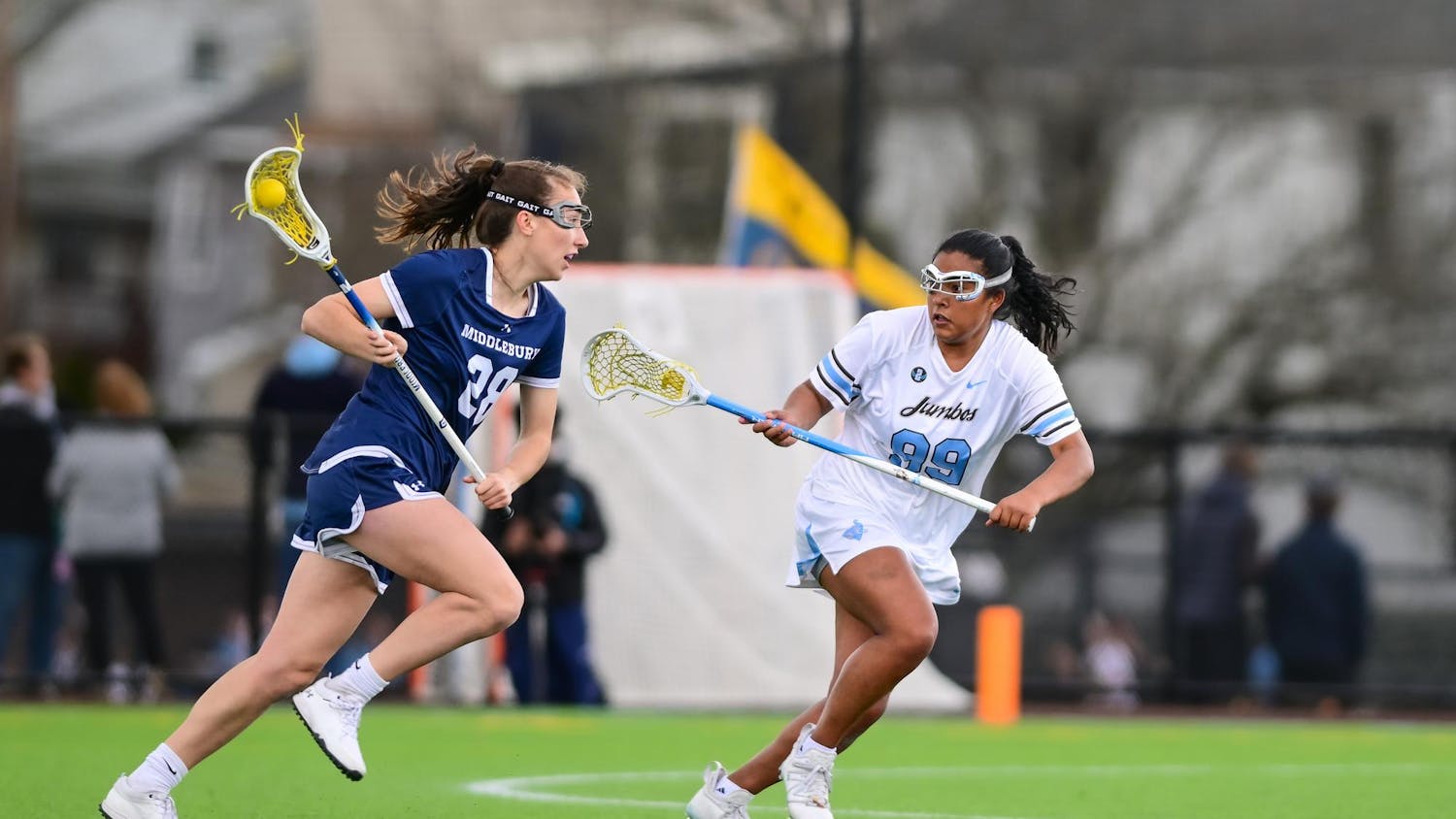Tufts is just one of the hallmarks of the journey of sailing coach Kenneth Legler’s historic career, but it will be the one where that coaching career comes to a close. As both a competitive sailor and a coach, he has made a dramatic impact on the sport as a whole.
With this being his 43rd and final year as the Jumbos’ head coach, he has amassed a large number of awards and accolades during his tenure, including an induction into the Intercollegiate Sailing Association Hall of Fame.
Before he came to Tufts, Legler sailed throughout high school and college. He attended the University of Rhode Island primarily due to the financial considerations it offered.
“I ended up kind of choosing a sailing school if you will. I actually got into Tufts, because it was so much easier back then, but the tuition was $5,000 instead of $3,000 for URI. My dad wanted me to make up the difference, but at the time minimum wage was only [$1.25] an hour. So I wouldn’t have been able to sail,” Legler said.
He excelled in college sailing, becoming an All-American and winning the dinghy and team racing national championships in 1977.

Leaving the college sailing scene, he was not initially looking to become a sailing coach, as running a sailing center was his top choice. The availability of running such centers was very limited however, and he found himself embarking on a different path.
“I took the first coaching job available after college which was assistant coach at [the U.S. Naval Academy],” Legler said. “And that dovetailed into head coach at [the U.S.] Merchant Marine Academy.”
At the Merchant Marine Academy, Legler made an immediate impact, winning two national championships. He decided to make the switch in 1980 to his college rival: Tufts.
“I knew they were loaded with talent. And [they were] also [in] the Boston area, and there weren’t all that many head coaching jobs available,” Legler said.
He took over for head coach Joe Duplin, who was a world champion sailor in the Star class, named for a type of two-person sailboat.
“The now-retiring sailing master at MIT was a Tufts undergrad at the time, and he actually talked me into applying to Tufts because the former coach was leaving,” Legler said. “So I said, ‘Sure.’”
The program was in good hands with Legler, as he won his first national championship at Tufts in that year in the coed dinghy championship. The next year, the team went back to back in the coed dinghy championship, winning again with a different group of sailors.
Legler continued his success with Tufts throughout the ’80s and ’90s, trading national championships with the U.S. Naval Academy. Recruiting had a large role to play in the success of those years.
“We were able to dominate in the ’90s because nobody else was recruiting except us and Navy,” Legler said.
Tufts commanded college sailing in that stretch, taking five women’s dinghy national championships in 10 years, along with winning the coed national championship again in 1997 and ripping off four back-to-back team racing national championships from 1993–96. Tufts set records along the way.
“We won eight women’s nationals — more than any other school,” Legler said.
Now, women’s sailing has become more competitive, as the recruiting scene coupled with the college admissions scene makes it difficult to attract both the best sailors and students from across the country.
“We enjoyed a recruiting edge 30 years ago, because Tufts was just beneath the Ivy Leagues and above all the rest, above Tulane and Michigan and Boston College and other schools so we had a layer to ourselves,” Legler said. “What happened was Tufts got harder and harder to get into; it became equivalent to the Ivy Leagues. At the same time, the Ivy Leagues started recruiting, and there’s your win style.”
The Ivy Leagues also have the capability to offer scholarships to students, a significant advantage in the recruiting process. As such, Tufts has stayed within the top sailing schools in the country over the past years but hasn’t won any dinghy national championships since 2003. It is still an appealing place to sail, simply because of the acclaimed history that encompasses its coaching staff. Legler has coached 92 All-American sailors throughout his career.
Legler’s recruiting strategy is simple; he looks for pure skill and students who are eager to sail as often as possible.
“If they [train] through winter sailing in their local frostbite fleet, they don’t have to go to the big championship in California just to prove they can sail in a big fleet,” Legler said.
His motto does not change much in the coaching realm once those students reach Tufts, emphasizing having fun along with striving to get the best results.
“They have to be able to keep up with academics, keep up with sailing and also keep up with just enjoying life,” Legler said. “And if they can pull off all of those three things, they’re doing great.”
As he transitions away from coaching, he will look to finally take some time for himself and enjoy sailing away from competition. Without the pressures of coaching, a lot more time opens up for personal enjoyment of the sport as well as making an impact on the literature side of things. He hopes to publish a book on sailing in the next year.
“It’s going to be called ‘College Sailing and Other Short Course Racing.’ And I don’t know if I’ll finish it in ’24, but I hope to finish it in ’24,” Legler said.

He will sail in his free time away from coaching, still holding onto the passion that has guided the majority of his life.
“I’m still sailing whenever I can,” Legler said. “I sail all winter in Boston Harbor and in the summer. And starting next year, I’ll be sailing in the fall and spring too.”
The Tufts sailing team is ranked just outside of the top 15 in the country in open rankings and No. 14 in the women’s rankings. Both the women’s and coed squads received bids to nationals, which begin on May 23. No matter how the team finishes, however, Legler has a different measure of achievement as he leaves Tufts.
“I like to think that I’m going to leave behind a team that sails for fun and enjoyment by being successful.”






